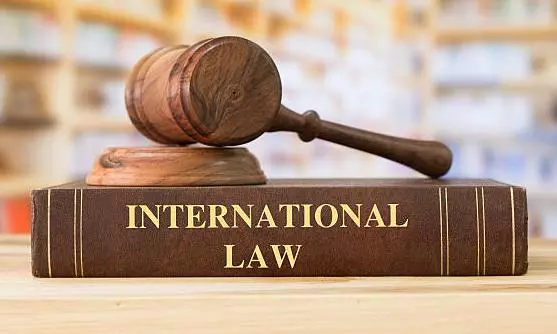
Why is international law so ineffectual?
text_fieldsInternational law is at once the most uplifting and the most demoralising area of law. The world envisioned by international law is paradisical: a world of equity where inviolable rights are enshrined in law. The necessities of life are guaranteed to each individual, and the world is free from cruelty and injustice. But the lugubrious reality is that international law is flatly flouted every single day and on a gargantuan scale. International law is jus cogensso erga omnes.
Why is it that international is so often breached so flagrantly? Why is this arrant injustice not addressed? Much of the problem is structural. The United Nations is at the heart of international law. The current global order was designed during the Second World War. Indeed, the Allies in that war dubbed themselves 'the United Nations.' The United Nations Organisation was founded at San Francisco, California in 1945. Its General Assembly was first held at London, UK, before New York City was selected as the permanent HQ of the UN. That is partially because the United States and the United Kingdom were so intimately involved in the foundation of the UN.
The UN strove to avoid the shortcomings of its precursor: the League of Nations. The League of Nations had not secured American membership. The absence of the mightiest country was a fatal flaw. Other powerful countries left the League in the 1930s, such as Germany, Italy and Japan. Therefore, the UN essayed to ensure that all mighty countries acceded to it. The UN had to entice them by privileging them. The UN Security Council was established with five permanent members. The permanent five were the United States, the Soviet Union, the United Kingdom, France, and China. They were reckoned to be the quintet of the most consequential nations. The Russian Federation has since become the successor state of the USSR.
A permanent member of the UN Security Council can veto any UN Security Council Resolution. That means impunity for any UN SC permanent member or its protégé. The United States has wielded this veto more than any other member state. The USA has often done so on behalf of Israel.
UN Security Council Resolutions are international law. Possessions are nine-tenths of the law. The mighty nations frame law to suit themselves, and they possess the lawful power to do so. But it is inequitable and illogical. Further, the current quintet do not reflect geopolitical realities. In 1945 the British Empire was extant and India was still under its aegis. It was assumed that though India was being granted her independence, the empire still had a long way to run in Africa. The United Kingdom is not even a quarter as powerful as it once was. The same is applicable to Paris. Russia is not the USSR and had only 50% of the population of the former USSR. Many former Soviet states are hostile to the USSR. On the other hand, China is much stronger than it was in 1945.
The International Court of Justice adjudicates on international disputes. The ICJ has judges from all over the world. Its rulings are binding. The trouble is there is no enforcement mechanism. A shameless regime can brass it out. Peremptory international law is so often blatantly disregarded by the affluent and military powerful nation states.
The International Criminal Court was founded in the 1990s. The USA was a prime mover behind it. Yet the USA has refused to sign the Rome Statute, which is the founding instrument of the ICC! The same goes for China, Israel and the Russian Federation. I am proud that the Republic of Ireland and the UK have signed it.
US non-membership of the ICC is galling. The USA has often sat on international criminal tribunals and sometimes urged others to be impanelled. This goes for the Nuremberg Trials, the Tokyo Trials, the International Tribunal for the former Yugoslavia and the Tribunal for Rwanda. The USA has urged other international tribunals to take place in Africa and elsewhere for the express purpose of the advancement of human rights. It is therefore shocking that the US is so utterly hypocritical in refusing to hold its own military personnel to the standards that it avers.
Some in the USA have called for Putin and his merry mob to be arraigned before the ICC. Marjorie Taylor Green and other racist Republican demagogues have voted against such a move. They fear the precedent might lead to US personnel one day being indicted before the self same court. There is an unspoken axis of illegality and unaccountability between militarists and ultra nationalists everywhere.
International human rights instruments glow with promise and compassion. Various human rights instruments assure people that they have very extensive rights. These include the right to free expression, freedom of religion, adequate incomes, publicly funded higher education, affordable healthcare, adequate leisure time, freedom from torture and so forth. So many states that have signed such instruments and ratified them brazenly break these solemn undertakings every single day and on a gross scale. The gulf between the public avowals of governments and what they actually do is enormous. It is nauseating that there is such bad faith.
What is to be done? An international human rights system with teeth is urgently needed. We need real enforcement of human rights. The quintet should no longer have privilege. It is obviously totally unfair. But why would they part with a system that suits them well? I cannot see it happening. Until then, human rights will be often ignored and abusers will get off scot-free. The rank injustice and barefaced hypocrisy is distressing and dispiriting.
George Callaghan is a political analyst based in the UK. Views are personal. Check out his Vlog "George from Ireland"











